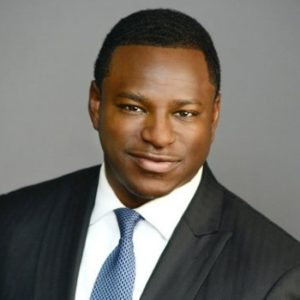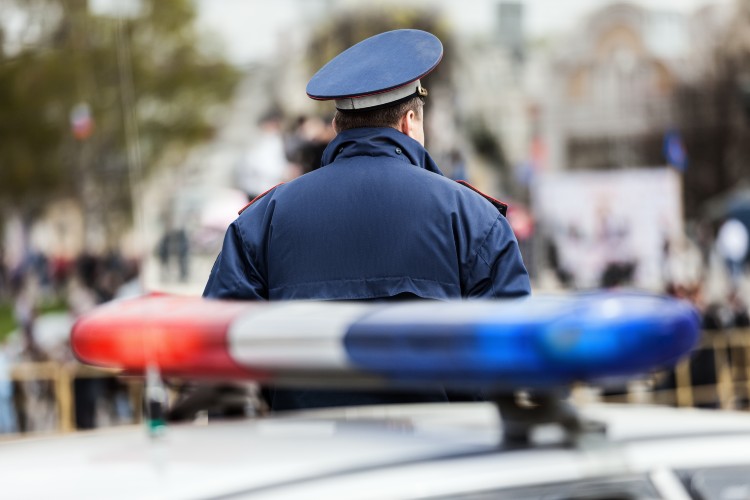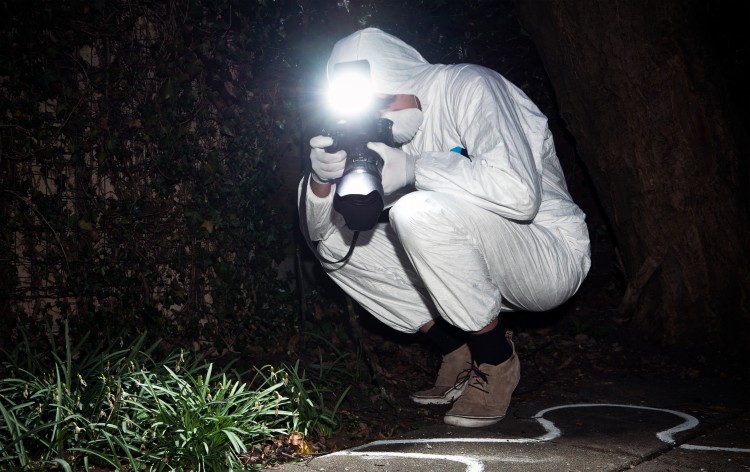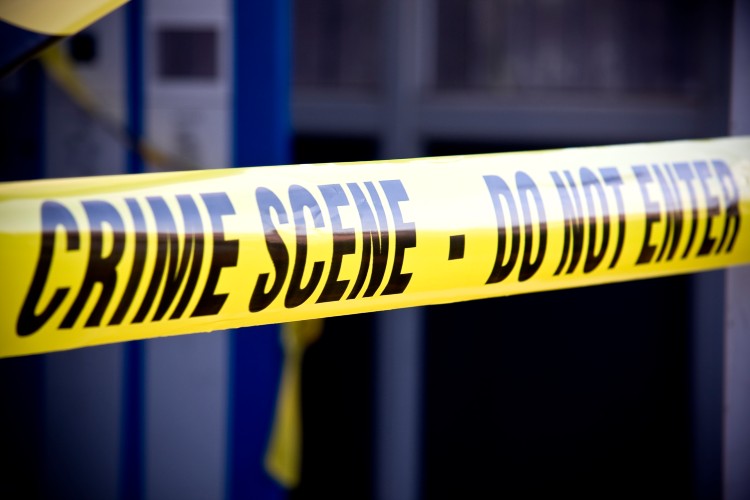Did your loved one lose their life in a police shooting? Were you personally injured in an unjustified police shooting? Victims in this position often have questions like:
If the negligence of an armed law enforcement officer caused you or a loved one injuries, you have the right to seek justice. Legal Herald will put you in contact with an experienced police shooting attorney who will analyze your case for free. Contact us now to get started.
A former Assistant District Attorney (ADA) in Philadelphia, police shootings lawyer Emeka Igwe is an experienced trial attorney. Emeka has previously obtained successful police shooting settlements for his clients and is dedicated to fighting for victims' rights.

The lawsuits that can result from unjustified police shootings are quite different from other types of personal injury or wrongful death cases. This is because, in many cases, the plaintiff (the victim) is fighting against natural biases that give law enforcement officers (and the local police department) the "benefit of the doubt."
It takes an experienced police shooting lawyer to know how to build a strong case for their client: one that can overcome such inherent prejudice. Yet, with skill and perseverance, victims can get the justice and compensation they deserve, either in court or via an unjustified police shooting settlement.
When police misconduct results in damages to private individuals, victims and their loved ones have the right to seek justice. By filing an unjustified police shooting lawsuit against a police department, county, and/or law enforcement officer, compensation may be achieved by way of a court award or out-of-court settlement.

It is often said that before an issue can be corrected, its incidence must be measured. Unfortunately, when it comes to wrongful death and unjustified police shootings, the officially-reported numbers don't tell the whole story.
This is due to a widely acknowledged lack of data on such incidents which inevitably leads to underreporting. Even considering the fact that official reports may be underestimating the frequency of wrongful death and personal injury from police shootings, it's important to study these figures nonetheless.
Here are some of the federal agencies that provide data on such incidents.
The National Violent Death Reporting System was established by the CDC as a way of measuring violent deaths in the USA and, in doing so, be able to find ways to prevent them.
Shooting deaths, regardless of who is pulling the trigger, are certainly considered violent deaths; this means that wrongful deaths resulting from police shootings fall under the NVDRS umbrella.
From the year 2009 to 2012, and taking into account data from only 17 states, a study of the NVDRS found that 812 fatalities resulted from the use of lethal force by law enforcement officers.
Aside from the fact that this study only analyzed data from 17 states and not the entire country, NVDRS data is also flawed in that it can miss a case where police officers fail to file reports or omit information that would have caused a shooting death to be correctly classified as one resulting from an officer's use of their weapon.
Similarly, the FBI also boasts a database that tracks police shootings: the National Use of Force Data Collection.
A voluntary data collection program, the National Use of Force Data Collection accepts information from "all federal, state, local, and tribal law enforcement and investigative agencies" who chose to share it. Yet, this program only began compiling information in January of 2019. More specifically, the data collection offers a view into self-reported instances of an officer discharging a firearm at or in the direction of a person. As with the CDC's statistics, if a police shooting is not properly categorized, it will simply fall through the cracks.
From the months of January to August of 2020, the FBI's National Use of Force Data Collection reported 514 such cases.

After learning of the number of police shootings taking place each year, however underreported they may be, it's only natural to wonder: when is it legal for law enforcement officers to shoot a private individual?
For decades, landmark cases have helped to develop a semi-concrete understanding of when police shootings are justified and when they are not. Unfortunately, there is no "rule of thumb" in such scenarios.
In the past, whenever it has faced a case related to this topic, the United States Supreme Court has been quite consistent in its view that it is juries should be the ones to make the call on a case-by-case basis.
Yet, Supreme Court has previously made specific decisions on a case dealing with police shootings. For example, the Supreme Court previously ruled that law enforcement officers should not use their weapons to prevent the escape of suspected felons, such as when they are running away from an officer. On the other hand, if it is clear that the suspect is moving towards the officer or another bystander with the intent of harming them, they may be justified in discharging the weapon in order to avoid the bystander from being hurt.
It goes without saying that the use of a deadly firearm should be a recourse of last resort for police officers. Yet, all too often it appears that officers, whether they be a state trooper, detective, sheriff or else, are quick to draw and fire at suspects whether it is legal for them to do so or not.
It's unclear what has caused many a police officer to go for the deadly option as opposed to exhausting the many other options when dealing with high-stress situations. It's even more difficult to understand when one considers that there exist a number of less-than-lethal options, including Tasers, which can be used to incapacitate a suspect who is deemed dangerous without endangering their lives to such a high degree. These same less-than-lethal weapons can also cause death, particularly when they are used improperly. Just like an unjustified shooting, individuals unreasonably injured by an officer who used a less-than-lethal weapon may also seek compensation for damages via the civil justice system.
Broadly speaking, a lack of adequate training often appears to be at the center of many unjustified police shootings. And while it's difficult to blame an officer for having received poor training, someone has to be held responsible for the damages suffered by victims and their families at the hands of negligent police departments.
When police officers shoot an individual, they may face a number of legal repercussions.
First and foremost, they may be tried in a criminal court for crimes such as homicide or manslaughter. The extent of the charges is usually up to the local District Attorney (DA) to decide and, naturally, will correspond to the specific circumstances of the shooting. Additionally, criminal proceedings may not award victims with any kind of compensation or, if compensation for damages and personal injury is awarded, it may not be substantial.
In some instances, officers may not face any criminal charges at all. Yet, this does not mean that they cannot be held liable for damages via a civil rights lawsuit. Police shootings can qualify as civil rights violations because the officer can be considered to have infringed upon the Fourth Amendment right of an individual (a Constitutional right.) As a result, police shooting victims or the family of those shot and killed by a police officer may win substantial compensation by taking legal action through the civil justice system. These claims are generally filed against the police department that employed the police officer involved in the shooting.
The law firm that a client elects to defend them in court can have a massive impact on the final result of a lawsuit.
Police shooting claims are very complex cases; even when an out-of-court settlement is reached, it may take months or more to come to this conclusion. These cases involve a thorough investigation and analysis of the evidence at hand. Attorneys also need to be familiar with relevant laws and case law. They may even have to seek consultants who can speak to whether an officer followed standardized procedure when the unjustified shooting or death took place.
Depending on the consequences of the shooting, different types of claims may be pursued. If the victim perished in the incident, the surviving family can be the ones to bring forth a wrongful death lawsuit. In such a claim, they may receive compensation that considers funeral & burial costs, loss of income, emotional suffering, loss of consortium and more.
When victims are lucky enough to survive the incident, a police shooting settlement may award them financial compensation that includes loss of earning potential (due to physical injuries,) pain & suffering, and more.
To understand which type of claim is best to pursue in your circumstances, it's highly advised to speak to an attorney or lawyer firm that is experienced in these types of cases.
Are you seeking your deserved compensation after suffering injuries in a police shooting? Has the loss of a loved one in a police shooting left you with unprecedented financial and emotional stress? Contact Legal Herald now to schedule a free consultation.
Our partner attorneys are experienced in police shooting cases and excessive police force claims against police departments. They can analyze the facts of your case free of charge and explain the legal options at your disposal.

 info@legalherald.com
info@legalherald.com